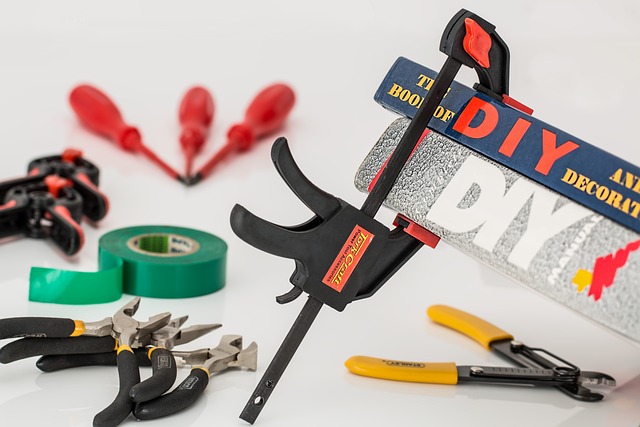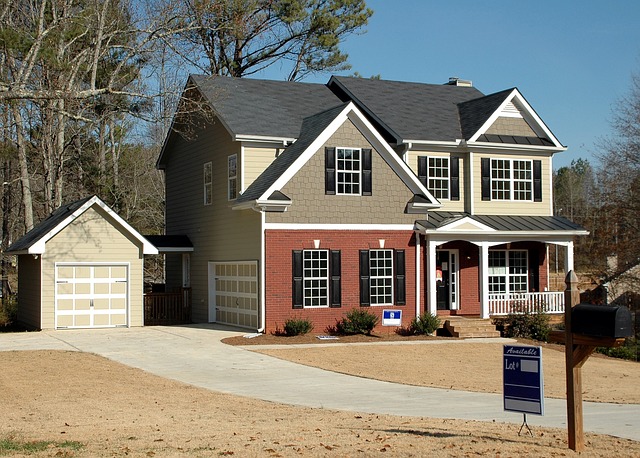Contractors have several financial options for funding home improvement projects, including traditional bank loans and lines of credit, which offer flexible repayment schedules and competitive rates, particularly beneficial for those with fluctuating cash flow. Specialized home improvement loans are also available, providing favorable terms that cater to the specific financial needs of construction and renovation work, especially rewarding contractors with a solid track record with access to capital for projects that can potentially increase property value. Additionally, government-backed programs and local incentives may offer grants or low-interest loans for sustainable home upgrades. For larger renovations, equipment financing is an option to secure necessary tools and machinery. Contractors should carefully assess project scale, timeline, and investment yield when selecting a loan, considering those with phased disbursement options that align with project milestones. Evaluating various loan products for competitive rates and favorable terms is crucial for financial strategy throughout the renovation lifecycle, from procurement to payment of labor and subcontractors, ensuring smooth project execution and contributing to business growth and a growing portfolio of completed projects. Contractors should prioritize a comprehensive financial self-assessment, including credit score and income stability review, to determine borrowing capacity and eligible loan types, and prepare necessary documentation for the underwriting process. Considering all these factors, home improvement financing for contractors is essential for successfully executing renovation projects and achieving business growth.
explore the landscape of financial solutions tailored for independent contractors seeking to undertake home improvement projects. This article delves into the nuances of home improvement financing for contractors, guiding you through the most advantageous loan options and providing a clear, step-by-step process to secure the funding you need. Whether you’re looking to expand your workspace or enhance your living quarters, understanding the best loans for contractors in home renovation projects is key to achieving your goals efficiently and effectively.
- Understanding Home Improvement Financing Options for Independent Contractors
- Evaluating the Best Loans for Contractors Engaged in Home Renovation Projects
- Step-by-Step Guide to Securing a Home Improvement Loan as an Independent Contractor
Understanding Home Improvement Financing Options for Independent Contractors

Independent contractors looking to undertake home improvement projects have a variety of financing options at their disposal. Traditional bank loans and lines of credit remain popular choices, offering flexible repayment terms and competitive interest rates. These financial instruments are tailored to fit the cash flow fluctuations typical of self-employment, making them a viable solution for contractors seeking to fund renovations, repairs, or upgrades to their personal or investment properties. Additionally, specialized home improvement loans are designed with the unique needs of contractors in mind, providing access to funds specifically for construction and renovation projects. These loans often feature favorable terms for contractors who can demonstrate a consistent track record of work, offering them the capital needed to invest in property enhancements that can, in turn, increase the value of their homes or rental properties.
Contractors should also explore government-backed programs and local incentives that may offer grants or low-interest loans for energy-efficient upgrades or other home improvements aimed at enhancing sustainability. Furthermore, equipment financing options can be leveraged to fund the purchase of tools and machinery required for more substantial renovation work. By considering these home improvement financing solutions, independent contractors can make informed decisions that align with their financial situation and project goals, ensuring they have the necessary resources to execute their visions effectively and efficiently.
Evaluating the Best Loans for Contractors Engaged in Home Renovation Projects

Contractors embarking on home renovation projects may find that securing appropriate financing is a pivotal aspect of their operations. Home improvement financing for contractors is tailored to meet the unique needs of this sector, offering specialized loan options that cater to the cash flow dynamics inherent in such projects. When evaluating the best loans for contractors, it’s crucial to consider factors such as the project scope, duration, and potential return on investment. Loans designed for home improvement typically feature flexible repayment terms, competitive interest rates, and access to funds that can be disbursed in phases aligned with project milestones. This ensures that contractors have the necessary financial support throughout the renovation process, from acquiring materials to paying subcontractors and laborers. By comparing various loan products, contractors can identify those that offer the most favorable terms, aligning with their specific financial situation and the nature of the renovation work at hand. This judicious approach to home improvement financing for contractors not only facilitates project execution but also paves the way for sustained business growth and a robust portfolio of completed renovations.
Step-by-Step Guide to Securing a Home Improvement Loan as an Independent Contractor

When independent contractors are looking to undertake home improvement projects, securing the right financing is crucial. Here’s a step-by-step guide tailored for contractors seeking home improvement financing. Firstly, assess your financial standing by reviewing your credit score and income stability. This will provide a clear picture of your borrowing power and the types of loan products you may qualify for. Next, determine the project scope and associated costs to estimate the loan amount needed. Shop around for lenders offering home improvement loans specifically designed for contractors, as these are often tailored to accommodate self-employed individuals’ unique financial situations.
Once you’ve identified potential lenders, compare their interest rates, terms, and any additional fees. Opt for a fixed-rate loan to ensure predictable payments and budget consistency throughout the project duration. Ensure that you have all necessary documentation ready, including proof of income, tax returns, and details of your current contracts. This documentation will be vital in the underwriting process, as lenders evaluate your ability to repay the loan. Additionally, explore alternative financing options such as home equity lines of credit (HELOCs) if you own the property where the improvements will take place. By following these steps meticulously and leveraging home improvement financing for contractors, you can secure the funding needed to enhance your living or workspaces effectively.
Contractors specializing in home renovation projects have diverse financial avenues at their disposal. This article has delved into the intricacies of securing home improvement financing tailored to independent contractors, emphasizing the importance of selecting loans that align with one’s project scope and financial situation. By understanding the various financing options available and following a structured approach to loan acquisition, contractors can effectively manage their projects and ensure timely completion. For those looking to navigate the world of home improvement financing for contractors, the insights provided here serve as a valuable guide to making informed decisions that will support business growth and success.
